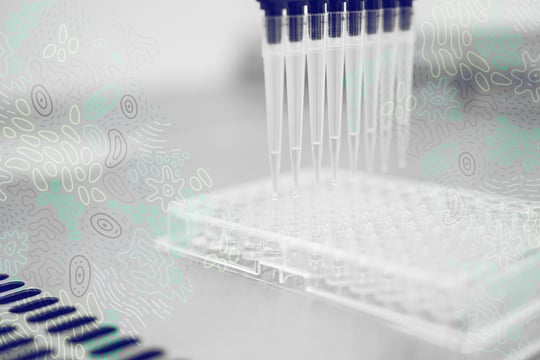
The Biosafe laboratory operates from our headquarters in Kuopio, in the lake district of Finland. The laboratory receives a number of parcels containing microbial testing samples from different customers every week. That's why it's of utmost importance to have Standard Operating Procedures in our microbiology lab.

The samples are handled by our laboratory technicians, two of whom we interviewed about their work.
Galina Vatanen (on the right in the picture), who has just finished preparing plates for testing the antimicrobial production of a microbial strain: 'You have to be focused on the work at hand, you need to be able to organize and take initiative. It requires precision and meticulousness for a project to run smoothly and without errors.'
Mari Heikkinen (on the left in the picture), who has a long and rich experience of working with various sample materials and microbial strains, is also responsible for the procurement of laboratory materials and reagents. 'We have clear SOPs (Standard Operating Procedures for Microbiology Laboratory) for each test,' says Mari. However, there are times when a sample material behaves abnormally. In those cases, we figure out together with the project managers what the reason might be.'
Getting authorisation is extremely important for each customer, sometimes on very short notice. Our observations in anomalous cases matter a great deal. Our analysis in the microbiology lab can actually be what really makes it or breaks it for the customer. That's why we have to be certain we do everything by the book.' Mari says.
The laboratory technicians, however, do not directly know the customer. The samples are coded, and the customer names are not visible when the samples are analysed. 'The only time we might see the customer’s name is when the samples arrive in packages at the laboratory, but you won't know which one is which after they are taken out,' says Galina. This way, we ensure that all customers and samples are treated equally.
'At Biosafe, it's definitely not conveyor belt work, though.' Mari adds. 'No day is the same. We have so many tests and analyses that it never gets boring. I would also say that it's the best thing about my work. It is rewarding to see the results of your analyses every day,' she continues.
How do they feel about working at the Biosafe laboratory? Both lab technicians agree that there is a level of detail and care that you won't necessarily find in other jobs. And you are constantly making sure you have recorded all the results. They believe data systems will feature more automation in the future and this is indeed on Biosafe’s development agenda, and streamlining processes is a continuous effort too. The laboratory has expanded and major improvements have been made during the past year. We are always excited to get new equipment into use and look forward to new developments, Mari and Galina conclude.
Biosafe's laboratory is specialized in testing microbial strains and products derived from microbial fermentation used in the food chain or as biotherapeutics.

Topic:









